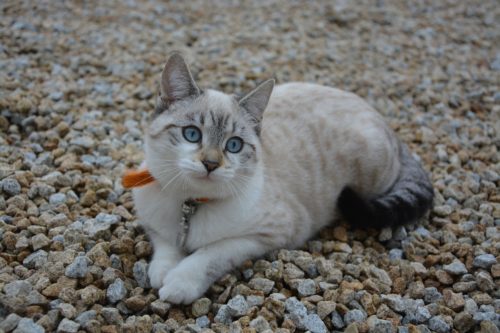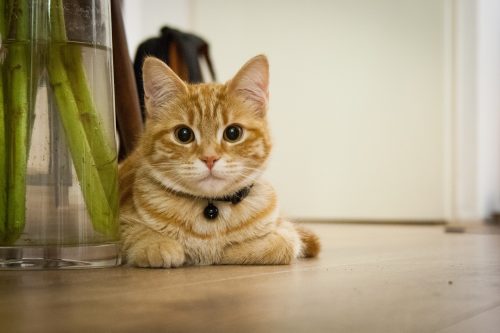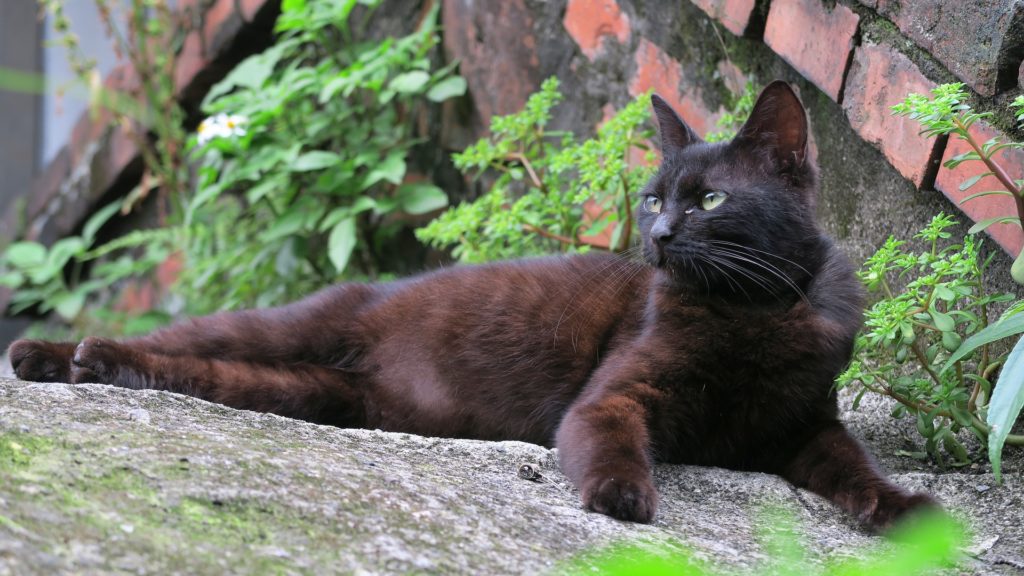Cats, like humans, can occasionally experience stomach problems. These can range from mild upset which will often self-correct to more serious issues such as dietary allergies. One symptom that can have mild or severe implications for cats is diarrhea. Diarrhea is characterized by frequent loose or liquid bowel movements. It may be sudden in onset and short in duration or last for weeks, even months, in more severe cases. A single bout of diarrhea is generally not cause for alarm in cats, but it persists for more than a day or two you should see a vet to rule out a more serious cause and avoid complications such as dehydration.
Symptoms of Diarrhea in Cats
Generally, the symptoms of diarrhea are pretty easy to recognize. Loose or watery stools that your cat is having are frequently the primary sign. However, other symptoms can include increased flatulence, the presence of blood or mucus in stool, and straining to defecate. If your cat’s diarrhea is accompanied by black or tarry stools, see your veterinarian immediately. This could be an indicator of internal bleeding of the stomach or small intestine.
In addition, your cat’s diarrhea may result in the presence of, or present alongside, other symptoms including lethargy, dehydration, fever, vomiting, loss of appetite, weight loss, and decreased control when defecating.
Causes of Cat Diarrhea
Diarrhea can be a standalone issue and response to something simple or it may be a symptom of a more complex issue. Your veterinarian will help you determine the root cause of your cat’s diarrhea. Some possible causes include:
- Change in diet
- Food intolerance, such as dairy or wheat
- Ingestion of spoiled food
- Allergic reaction
- Intestinal blockage or ingesting foreign bodies
- Ingesting toxins or drugs
- Bacterial or viral infection
- Internal Parasites, such as roundworm or Giardia
- Inflammatory Bowel Disease
- Kidney, pancreatic, or liver disease
- Addison’s Disease, underactive adrenal glands
- Cancer
- Tumors of the digestive tract, cancerous or otherwise
- Medication reaction
- Hyperthyroidism, an overactive thyroid
- Colitis, chronic inflammation of the digestive tract
As you can see the potential causes of feline diarrhea are varied in severity. Working with your vet to determine the cause and correct course of treatment will be crucial to your cat’s recovery.
Diagnosing Diarrhea in Cats
You will be able to diagnosis diarrhea at home, but a trip to the vet will be required if it persists for more than 24 hours. Your veterinarian will complete a full physical examination to determine any underlying cause of diarrhea. You will need to provide a thorough history of your cat’s symptoms and health, including incidents that may have precipitated his condition. A number of tests can be utilized to help rule out possible causes.
First, x-rays can rule out an intestinal blockage or the possibility your cat ingested something he shouldn’t have. Then blood tests can be performed to check the levels of digestive enzymes and vitamins in the body which helps eliminate organ inflammation as a possible cause. Fecal samples can also be helpful to test, checking for parasites and other infections. Finally, your vet may choose to run a urinalysis and electrolyte panel to rule out the possibility of other diseases.
Diarrhea Treatment
If your cat is experiencing diarrhea without many other symptoms, you can try some at home treatment to see if the situation improves. Remove your cat’s food for 12 to 24 hours while he is experiencing diarrhea. Continue to provide plenty of fresh water to stave off dehydration which could worsen your cat’s health. If improvements are not seen, take your cat to the vet for further diagnosis.
Diarrhea Prevention
If there is an underlying medical cause for your cat’s diarrhea, there is not much you can do in the way of prevention. However, if it is simply a dietary issue there are some guidelines you can follow to help avoid this unpleasant complication.
First, avoid giving your cat too much dairy. Most adult cats do not have a sufficient amount of the digestive enzyme lactose, which helps to process those foods properly. Undigested dairy products will move to the large intestine where they will ferment causing gas and diarrhea if not fully broken down. Second, if you change your cat’s food or diet, it is best practice to introduce the new food gradually in order to give your cat time to adjust. You can do so by adding the new food to the old and over time add more new food to the mix while removing the old food.




